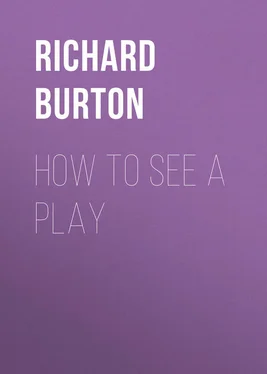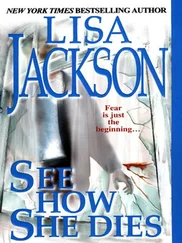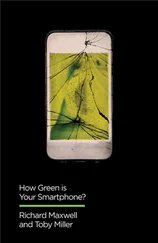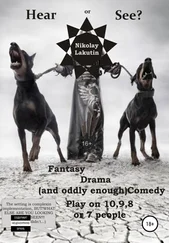Richard Burton - How to See a Play
Здесь есть возможность читать онлайн «Richard Burton - How to See a Play» — ознакомительный отрывок электронной книги совершенно бесплатно, а после прочтения отрывка купить полную версию. В некоторых случаях можно слушать аудио, скачать через торрент в формате fb2 и присутствует краткое содержание. ISBN: , Жанр: foreign_antique, foreign_prose, foreign_dramaturgy, на английском языке. Описание произведения, (предисловие) а так же отзывы посетителей доступны на портале библиотеки ЛибКат.
- Название:How to See a Play
- Автор:
- Жанр:
- Год:неизвестен
- ISBN:http://www.gutenberg.org/ebooks/32433
- Рейтинг книги:5 / 5. Голосов: 1
-
Избранное:Добавить в избранное
- Отзывы:
-
Ваша оценка:
- 100
- 1
- 2
- 3
- 4
- 5
How to See a Play: краткое содержание, описание и аннотация
Предлагаем к чтению аннотацию, описание, краткое содержание или предисловие (зависит от того, что написал сам автор книги «How to See a Play»). Если вы не нашли необходимую информацию о книге — напишите в комментариях, мы постараемся отыскать её.
How to See a Play — читать онлайн ознакомительный отрывок
Ниже представлен текст книги, разбитый по страницам. Система сохранения места последней прочитанной страницы, позволяет с удобством читать онлайн бесплатно книгу «How to See a Play», без необходимости каждый раз заново искать на чём Вы остановились. Поставьте закладку, и сможете в любой момент перейти на страницу, на которой закончили чтение.
Интервал:
Закладка:
But suppose the play merit not approval but the reverse; what then? The gallery gods, those disthroned deities, were wont more rudely to supplement this manual testimony by the use of their other extremities, the feet. The effect, however, is not desirable. Yet, in respect of this matter of disapproval, it would seem as if the British in their frank booing of a piece which does not meet their wishes were exercising a valuable check upon bad drama. In the United States we signify positive approval, but not its negation. The result is that the cheaper element of an audience may applaud and so help the fate of a poor play, while the hostility of those better fitted to judge is unknown to all concerned with the fortunes of the drama, because it is thus silent. A freer use of the hiss, heard with us only under rare circumstances of provocation, might be a salutary thing, for this reason. An audible expression of reproof would be of value in the case of many unworthy plays.
But perhaps in the end the rebuke of non-attendance and the influence of the minatory word passed on to others most assists the failure of the play that ought to fail. If the foolish auditor approve where he should condemn, and so keep the bad play alive by his backing, the better view has a way of winning at the last. Certainly, for conspicuous success some qualities of excellence, if not all of them, must be present.
But intelligent play-going means also a perception of the art of acting, so that the technic of the player, not his personality, will command the auditor's trained attention and he will approve skill and frown upon its absence.
And while it is undoubtedly more difficult to convey this information educationally, the ideal way being to see the best acting early and late and to reflect upon it in the light of acknowledged principles, something can certainly be done to prepare prospective theater-goers for appreciation of the profession of the player; substituting for the blind, time-honored "I know what I like," the more civilized: "I approve it for the following good and sufficient reasons." Even in school, and still more in college, the teacher can coöperate with the taught by suggesting the plays to be seen, amateur as well as professional; and by classroom discussion afterward, not only of the plays but concerning their rendition. Students are quick to respond when this is done, for the vital object lesson of current drama always appeals to them, and they are glad to observe a connection between their amusement and their culture. At present, or at least up to a very recent time, the eccentricity of such a procedure would all but have endangered the position of the teacher so foolhardy as to act upon the assumption that the drama seen the night before could be in any way used to impart permanent lessons concerning a great art to the minds of the pupils. Luckily, a more liberal view is taking the place of this crass Philistinism.
In a proper appreciation of the actor the hearer will look beyond the pulchritude of an actress or the fit of an actor's clothes; he will judge Miss Ethel Barrymore by her power of envisaging the part she assumes, and not be overly interested in an argument as to her increase of avoirdupois of late years. He will not allow himself to consume time over the question whether Mr. William Gillette in private life is addicted to chloral because Sherlock Holmes is a victim of that most reprehensible habit.
And above all he will constantly remind himself that acting is the art of impersonation, exactly that; and, therefore, just as high praise goes to the player who admirably portrays a disagreeable part as to one in whose mouth the playwright has set lines which make him beloved from curtain to curtain. Yet the majority of persons in a typical American theater audience hopefully confuse the part with the player, and award praise or blame according as they like or dislike the part itself.
The intelligent auditor will also give approval to the stage artist who, instead of drawing attention to himself by the use of exaggerated methods, quietly does his work, keeps always within the stage picture, and trusts to his truthful representation to secure conviction and reward. How common is it to see some player overstressing his part, who, instead of being boohed and hissed as he deserves and as he infallibly would be in some countries, receives but the more applause for his inexcusable overstepping of the modesty of his art. It becomes part of the duty of our intelligent play-goer to teach such pseudo-artists their place, for as long as they win the meed of ill-timed and ignorant approval, so long will they flourish.
Nor will the critic of the acceptable actor fail to observe that the latter prefers working for the ensemble — team work , in the sporting phrase – to that personal display disproportionate to the general effect which will always make the judicious grieve. In theatrical parlance, "hogging the stage" has flourished simply for the reason that it deceives a sufficient number in the seats to secure applause and so throws dust in the eyes of the general public as to its true iniquity. The actor is properly to be judged, not by his work detached from that of his fellows, but ever in relation to the totality of impression which means a play instead of a personal exhibition. It is his business to coöperate with others in a single effect in which each is a factor in the exact measure of the importance of his part as conceived by the dramatist. Where a minor part becomes a major one through the ability of a player, as in the famous case of the elder Sothern's Lord Dundreary, it is at the expense of the play; Our American Cousin was negligible as drama, and hence it did not matter. But if the drama is worth while, serious injury to dramatic art may follow.
Again, the intelligent play-goer will carefully distinguish in his mind between actor and playwright. Realizing that "the play's the thing," he will demand that even the so-called star (too often an actor foisted into prominence for a non-artistic reason) shall obey the laws of his art and those of drama, and not unduly minimize for personal reasons the work of his coadjutors in the play, nor that of the playwright who intended him to go so far and no further. The actor who, whatever his fame, and no matter how much an unthinking audience is complaisant when he does it, makes a practice of giving himself a center-of-the-stage prominence beyond what the drama calls for, is no artist, but a show man, neither more nor less, who deserves to be rated with the mountebanks rather than with the artists of his profession. But it may be feared that "stars" will continue to seek the stage center and crowd others of the cast out of the right focus, to say nothing of distorting the work of the dramatist, under the goad of megalomania, so long as a goodly number of unintelligent spectators egg him on. His favorite line of poetry will be that of Wordsworth:
"Fair as a star when only one is shining in the sky." It is to help the personnel of such an audience that our theater-goer needs his training.
A general realization of all this will definitely affect one's theater habit and make for the good of all that concerns the art of the playhouse. It will lead the properly prepared person to see a good play competently done, but with no supreme or far-famed actor in the company, in preference to a foolish play, or worse, carried by a "star"; or a play negligible as art or hopelessly passé as art or interpretation of life for which an all-star cast has been provided, as if to take the eye of the spectator off the weaknesses of the drama. Often a standard play revived by one of these hastily gathered companies of noted players resolves itself into an interest in individual performances which must lack that organic unity which comes of longer association. The opportunity afforded to get a true idea of the play is made quite secondary, and sometimes entirely lost sight of.
Читать дальшеИнтервал:
Закладка:
Похожие книги на «How to See a Play»
Представляем Вашему вниманию похожие книги на «How to See a Play» списком для выбора. Мы отобрали схожую по названию и смыслу литературу в надежде предоставить читателям больше вариантов отыскать новые, интересные, ещё непрочитанные произведения.
Обсуждение, отзывы о книге «How to See a Play» и просто собственные мнения читателей. Оставьте ваши комментарии, напишите, что Вы думаете о произведении, его смысле или главных героях. Укажите что конкретно понравилось, а что нет, и почему Вы так считаете.












